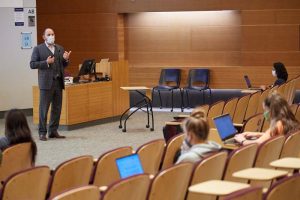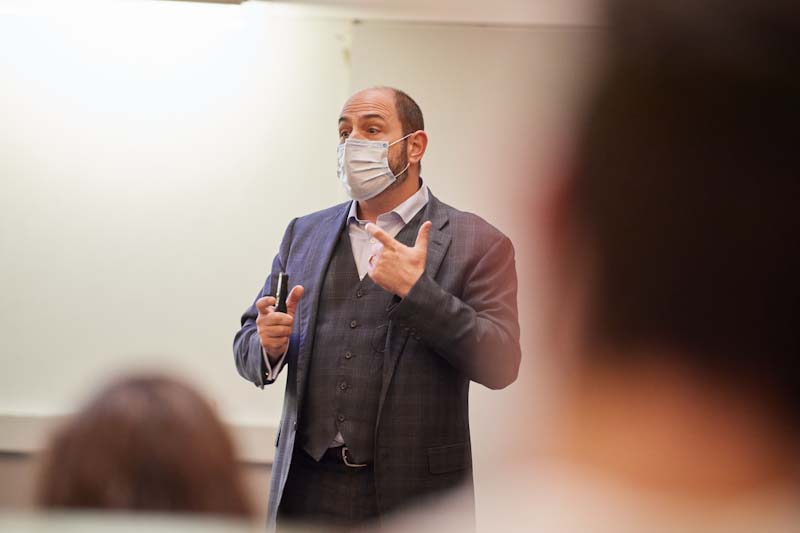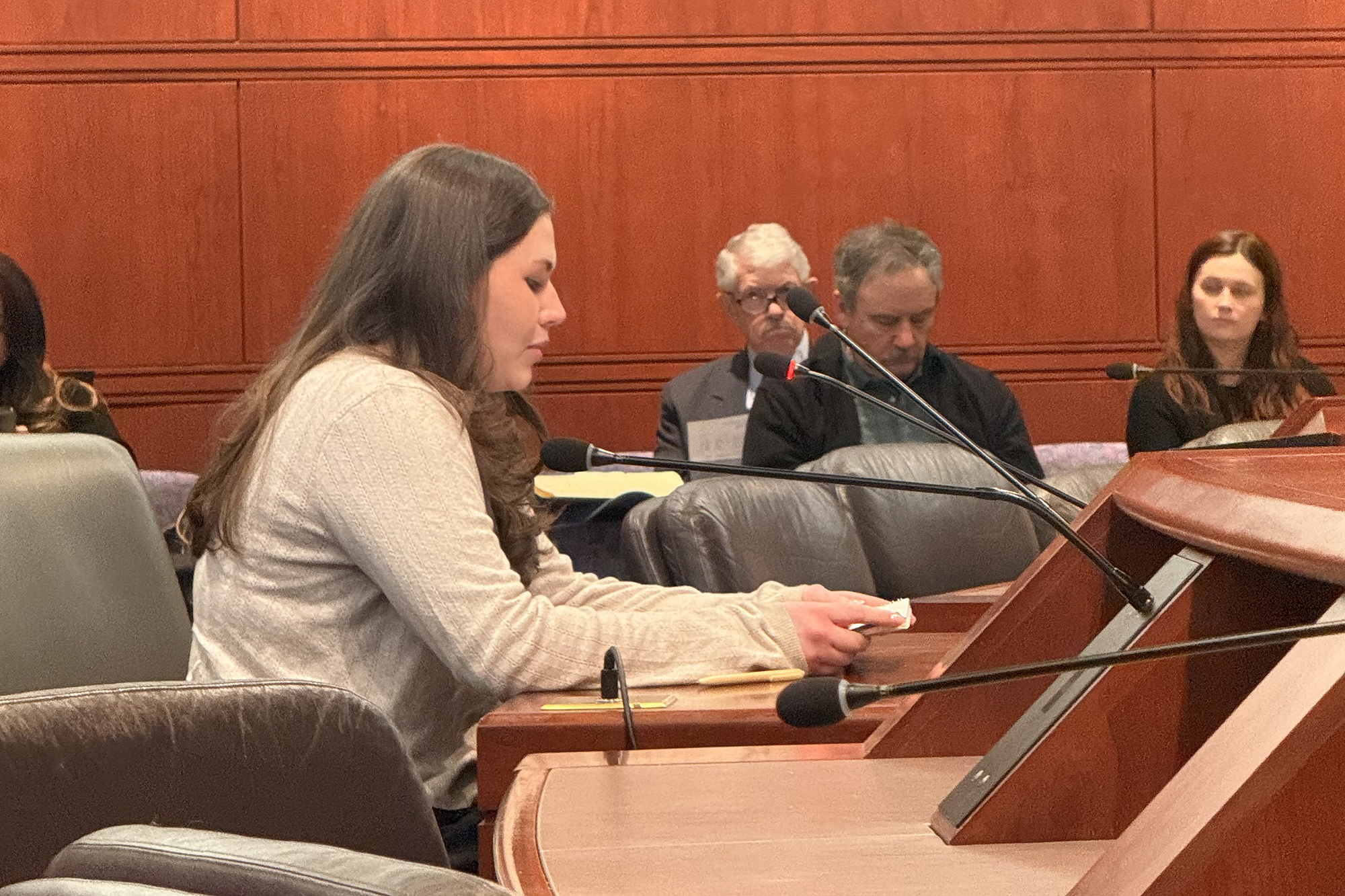UConn provost Carl Lejuez is a busy person this semester. He is in his first year as UConn’s chief academic officer, and doing the job in the midst of the COVID-19 pandemic. There are countless administrative duties he is fulfilling as he works with deans, department heads, and faculty to make sure the fall is as successful as possible while looking ahead to spring.
His days – and nights – are full of WebEx meetings, phone calls, emails, and texts.
However, he is also contributing to the educational experience at UConn by teaching a class in person, while observing all the rules of safety and social distancing, of course.
“Tools for Emotional Wellbeing” is Lejuez’s one-credit course that meets once a week on Tuesday evenings in a large classroom in McHugh Hall. It teaches students skills to help manage stress and enhance their wellness during a time of anxiety and uncertainty on top of the usual demands on college students.
“When I had the sense that there were lots of students who wanted the in-person class experience, I was just sitting in my office and thinking,” says Lejuez. “I had been preparing this sort of thing, not for a class, but for research projects. However, I thought I could put something together and teach a class. I got five other faculty to do it with me almost immediately, and we started to put it together three weeks before the semester started. It just seemed like the right thing to do.”
Other instructors in the class are assistant professor of psychological sciences Jeffrey Burke; assistant professor of educational psychology in the Neag School of Education Clewiston Challenger; associate director and associate research professor, Institute for Collaboration on Health, Intervention, and Policy Deborah Cornman; assistant professor in residence in psychological sciences at UConn Avery Point Jamie Kleinman; and associate professor of psychological sciences Stephanie Milan.
Lejuez started his new position at UConn at the end of May, after serving as the dean of the College of Liberal Arts and Sciences at the University of Kansas. He had also been Kansas’s interim provost and executive vice chancellor for a period. Lejuez was previously a professor of psychology and associate dean of research for the College of Behavioral and Social Sciences at the University of Maryland.

“Given that I haven’t been here a long time, the class is a good way for me to get a sense of what the classroom experience is like here at UConn,” says Lejuez. “You can fill up your whole day with the administrative stuff, but I think when you do these sort of things you understand student, faculty, and staff experience better. That’s always beneficial.”
The class introduces evidence-based strategies to support better understanding of an individual’s own psychological wellness, as well as personal choices and behavior. It is not meant to diagnose or treat psychological illness – the aim is to better understand how stress, anxiety, and mood impact daily lives and give a student strategies rooted in scientific study for personal growth and overall well-being.
“Psychology is often focused on the people who are the most impaired and need extensive professional treatment,” says Lejuez. “But generally and in particular, these days, lots of people are struggling. Something we forget sometimes in psychology is that stress, depression, and anxiety are all in a continuum. Everyone experiences them a little bit, so why wouldn’t these approaches we use in a clinical setting not be valuable if we approach it in the right way in everyday settings? Particularly, where students are really trying hard to adjust to college.”
Lejuez teaches students to keep a behavioral log, where goals are set for each day as the week begins, and then keep track of the results. Goals can include such items as exercise, healthy eating, and relaxation. If a goal is not met, the result is not to be punitive, but to evaluate again for the next week.
In a recent class, Lejuez shared with students his own behavioral log and where he succeeded and what areas he can work on.
Physical self-care is discussed, covering such topics as exercise, sleep hygiene, and the effects of caffeine, alcohol, and recreational drugs. He also teaches progressive muscle relaxation and breathing exercises.
Students complete in-class assignments such as writing about something that will make them anxious in the next few days, and what they will do to try to make it better. Lejuez teaches students about anxiety-related avoidance, and how that makes uncomfortable feelings even harder to deal with in the future.
Lejuez says he’s enjoyed his return to the classroom, and has found the experience to be very natural, despite the changes necessitated by the pandemic.
“I always did a lot of research presentations, and as provost you obviously speak in front of people all the time,” says Lejuez. “So in some ways, being provost and a dean has made me a better teacher.”



